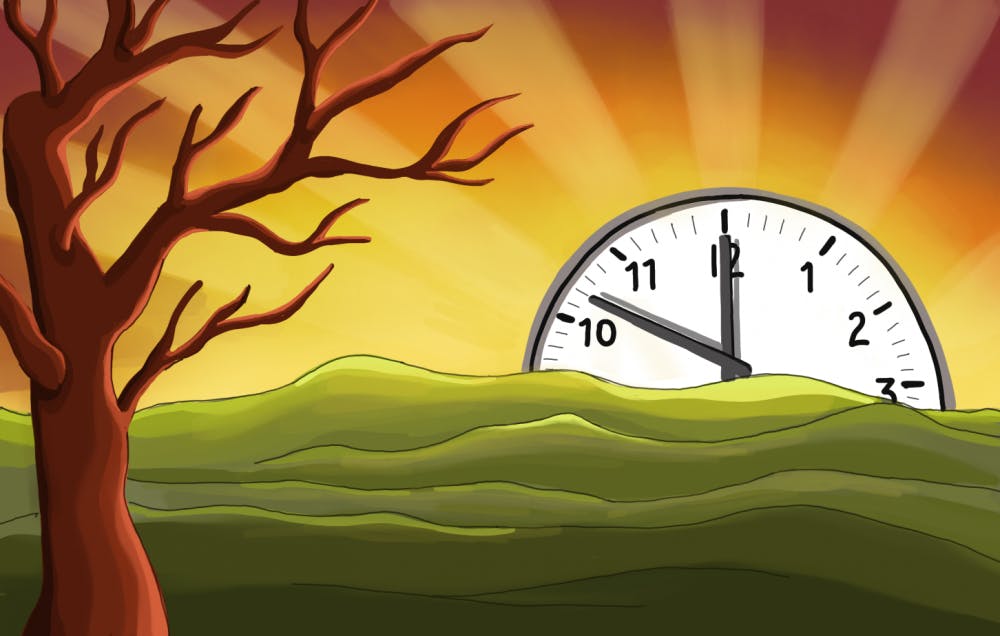On Sunday, Nov. 4, we turned our clocks back and gained an extra hour of blissful sleep. While many of us appreciated this opportunity to catch up on some much–needed rest, gaining an hour of daylight in the morning means losing an hour of light in the afternoon.
However, this transition of light from the afternoon to the morning isn't particularly beneficial for Penn students—many of us are sleeping during that time, eating breakfast, or getting ready for the day. Likewise, by the time many students are done with classes, they have little to no time before it is dark.
Light has a powerful effect on the brain and can be helpful to those suffering from depression. So it's important for students to find ways to maintain daylight exposure during this time of the year.
“My freshman winter was a big shock because you don’t get to go home to your family anymore,” said Samantha Ratakonda (C '19). “In the beginning, I isolated myself mostly because it was just so cold and I wanted to get back to my room.” Samantha is the co–president of Reach–A–Peer (RAP) helpline, along with Megha Nagaswami (C '19).
RAP is a confidential, student–run anonymous peer support service that also offers information and referrals. RAP Helpline (215-573-2727) is staffed from 9 p.m.—1 a.m. every night and also offers 24/7 anonymous online letter and text (215-515-7332) services.
With Penn’s strong push on the Wellness initiative, it is important to consider the mental health consequences of this transition from Daylight Savings Time to Standard Time. Seasonal depression or seasonal affective disorder (SAD) is a type of depression related to the changing of the seasons and affects around 1.6 billion people across the globe. A study published in the journal Epidemiology shows an increase in the cases of unipolar depressive episodes following the transition from Daylight Savings Time.
“[Seasonal depression] is a very real thing to feel,” says Megha, “checking in with your friends and talking about it helps too. If you think you're the only one feeling like that, chances are someones else is also feeling down just because it's darker outside.”
Megha and Samantha both stress the importance of communicating with others about your mental health—both the positive and negative aspects of it. RAP is there for everything and “you don’t need to be in a ‘crisis’ to call us or use on–campus resources” says Megha.
Penn has many organizations dedicated to mental health, some run by trained professionals and many run by students, for students. Penn Benjamins is another peer counseling student organization that offers short–term, in–person confidential peer listening and referral services.
While students cannot offer advice, the support they provide can be invaluable. Students are encouraged to go to Counseling and Psychological Services (CAPS) to talk with certified professionals. You can talk directly with a clinician over the phone, schedule an appointment, or make a walk–in appointment during business hours of Monday and Friday between 9 a.m.—5 p.m., Tues—Thurs between 9 a.m.—7 p.m., and Saturday between 10 a.m.—3 p.m.
As we venture into winter, it's important for students to lean on their support system, whether that be their family back home, a roommate, or one the many wellness services at Penn.
Samantha adds, “the basic communication is enough to get you out of your shell and make you think about how you are actually feeling.”

